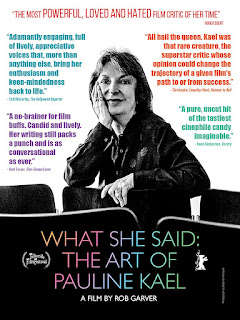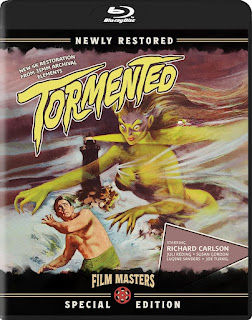What She Said: The Art of Pauline Kael
The demise of the professional film critic was lauded by most casual movie fans as something long overdue. After all, no one wants to hear some failed artist tearing apart their favorite writer, director, star or franchise. There’s some strange sort of fan propriety than reacts to any criticism with almost parental violence. Of course, the criticism hasn’t stopped, it’s only become increasingly fragmented…and increasingly uneducated. The studios finally have exactly what they want: an audience whose opinions can be manipulated with a trending social media post or empty-headed influencer. Who knew the democratization of film criticism would have us pining for the days of Pauline Kael.
Who is Pauline Kael? Well, if Siskel & Ebert were the curmudgeonly uncles stuck in the balcony tossing off well-intentioned insults, Kael was the aunt whose cutting remark or unexpected praise were the talk of family reunions for years to come. As the matriarch of film criticism, Kael lorded over the success and/or failure of many a Hollywood production via her column at The New Yorker with a writing style that jettisoned stodgy term-paper presentation in exchange for a conversational - and personally insightful – style.
What She Said: The Art of Pauline Kael (2020), a documentary made up of images and interviews from Kael’s victims and collaborators, will probably garner more attention now that Quentin Tarantino (an afficionado who is also participates in the film) has hinted that his next, and perhaps final movie will be about Kael’s career. And as director Rob Garver’s film proves, she’s a fascinating subject, prone to personal vendettas and raging ambitions balanced with a true love of cinema. What She Said whips together a warts-and-all portrait of a woman who rose to the top of her professional in a boy’s club of editors, publishers and filmmakers. But one who wasn’t without faults of her own.
Using clips from films Kael championed or dismantled in her column, Garver’s film brilliantly incorporates the reviews themselves - voiced by Sarah Jessica Parker - to provide contextual examples of her impact on readers and the film community at large (Kael had a group of like-minded “Paulettes”, including Paul Schrader, who supported films she felt needed an extra push). An advocate for directors she admired like David Lynch, Brian De Palma and Robert Altman, no critic before or since wielded such industry-wide power…and wasn’t above using it.
If nothing else, What She Said inspires the immediate desire to find out what Kael thought of everyone’s personal top ten. Garver’s film shines a little light on a complicated figure who helped as many films as she destroyed (Ridley Scott is still pissed about her review of Blade Runner over 40 years later). And proved that when it comes to film criticism it’s not so much what you say as how you say it.
MVD and Juno Films DVD release is a few years old now but more relevant than ever. Bonus features include a few deleted sequences and extra interviews with Tarantino and Schrader.




Comments
Post a Comment